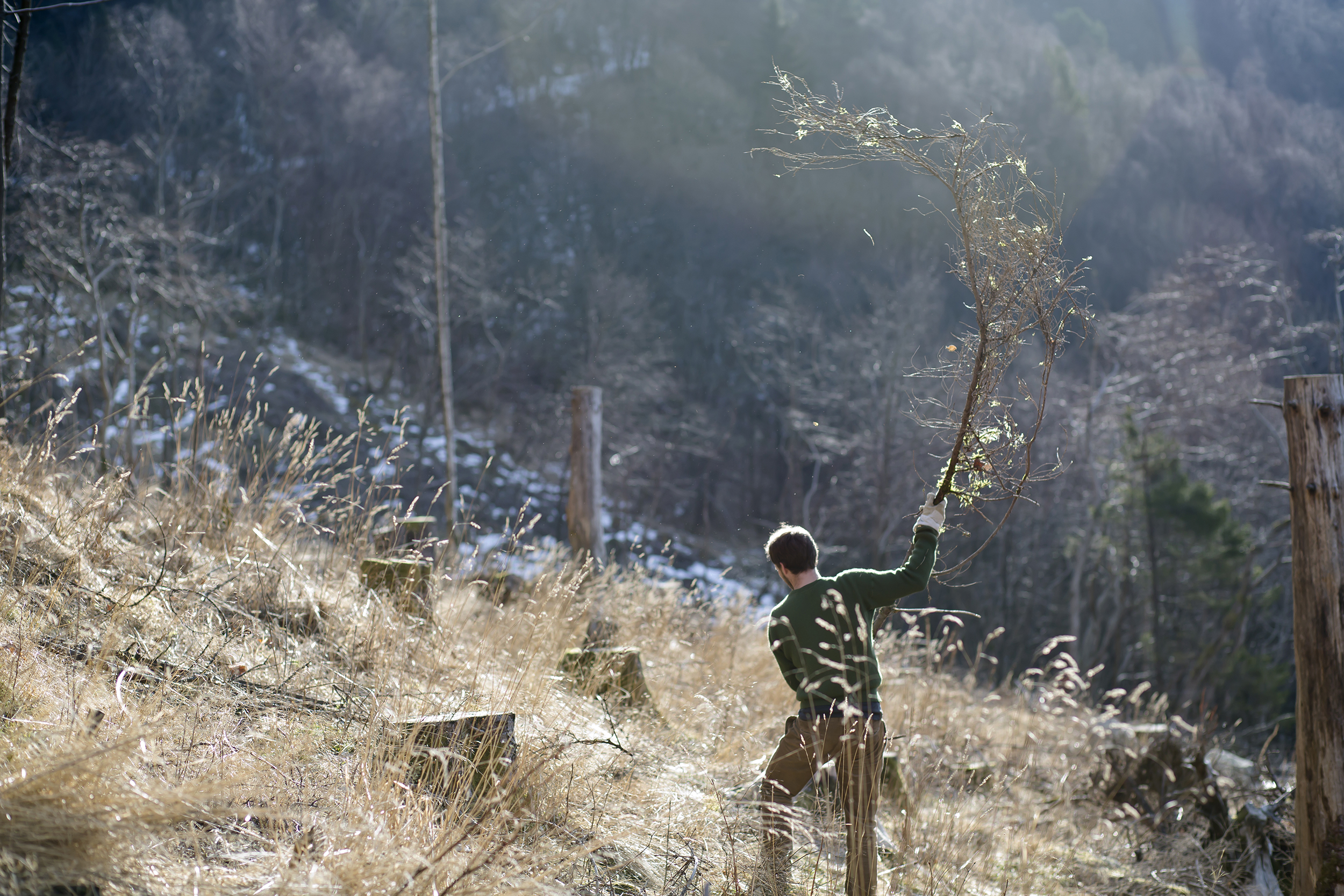Matskogen and Gram Art Project
Borrow, Sow, Return, 2025
In Paradsinga, a village shaped by industrial farming and climate change, a former cotton field becomes a place for gathering, making, and reclaiming knowledge. In Landås, Bergen, a sunny hillside of barren, cut-back woodlands becomes a food forest where plants, people, and stories grow together. Both Gram Art Project and Matskogen began as responses to loss — of ecological balance, of communal access, of knowledge, and of natural diversity — and have grown into spaces where other ways of living take root.
In this collaboration, they come together through shared rhythms of growing, foraging, seed-saving, and making. Their process unfolds through workshops, walks, meals, and gatherings, and the production of a co-authored ‘seed-zine’. Printed on handmade paper from both sites, the zine becomes a living record, filled with recipes, reflections, plant stories, and pages you can grow. At its heart is the seed — not only as food and memory, but as resistance to monoculture and erasure.
Together, the two collective practices ask how to celebrate without excess, how to return what we borrow, and how to grow culture from the soil up. A temporary seed library at Bergen Kunsthall links to the permanent one at Landås, grounding this work in everyday practice. What is brought forward by these projects is not a blueprint, but a living process — tender, manual, and rooted in the everyday.
Gram Art Project (founded 2013, Paradsinga) is a rural collective of farmers, women, artists, and makers working in and around the village of Paradsinga, Madhya Pradesh. Rooted in a lived response to extractive development and the erosion of village life, the collective explores ways of living and making that are socially and ecologically non-exploitative. Their practice spans seed-saving, yarn work, land art, plantable seed papers, edible artefacts, and performance. For Gram, art is not separate from life — it is a way to express the complexities of rural survival and joy, and to resist systems that render both invisible. Their work grows from indigenous cotton, foraged fibres, and collective decisions, and is held within a hybrid structure of social, commercial, and non-profit activity.
Matskogen på Landås (founded 2012, Bergen) is a community food forest and open commons for regenerative land practices, located on a sunlit slope in Bergen. Emerging after a woodland was cut back and left barren, Matskogen was built by volunteers as a living response, combining food production with nature stewardship, and knowledge-sharing with seasonal rhythm. Over time, the site has grown into a dense and diverse forest garden, home to more than 100 edible plants and trees. As part of the Bærekraftige liv (Sustainable Living) network, Matskogen offers a slow, grounded alternative to extractive systems, inviting neighbours to taste, plant, and participate in the shaping of a shared future.
What’s on?
No scheduled events
View full programme-
Bergen Kunsthall
Rasmus Meyers allé 5
5015 BergenTuesday–Wednesday: 11:00–17:00
Thursday: 11:00–20:00
Friday–Sunday: 11:00–17:00
